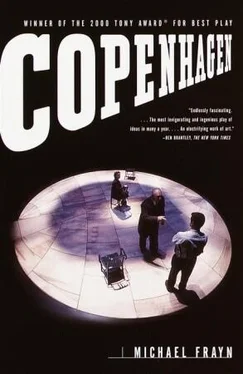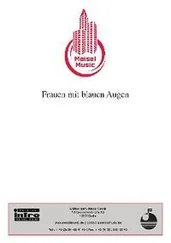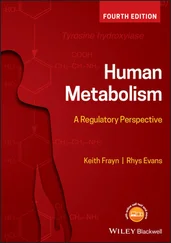Bohr He succeeded. We ended up with a treaty. Uncertainty and complementarity became the two central tenets of the Copenhagen Interpretation of Quantum Mechanics.
Heisenberg A political compromise, of course, like most treaties.
Bohr You see? Somewhere inside you there are still secret reservations.
Heisenberg Not at all — it works. That’s what matters. It works, it works, it works!
Bohr It works, yes. But it’s more important than that. Because you see what we did in those three years, Heisenberg? Not to exaggerate, but we turned the world inside out! Yes, listen, now it comes, now it comes.… We put man back at the centre of the universe. Throughout history we keep finding ourselves displaced. We keep exiling ourselves to the periphery of things. First we turn ourselves into a mere adjunct of God’s unknowable purposes, tiny figures kneeling in the great cathedral of creation. And no sooner have we recovered ourselves in the Renaissance, no sooner has man become, as Protagoras proclaimed him, the measure of all things, than we’re pushed aside again by the products of our own reasoning! We’re dwarfed again as physicists build the great new cathedrals for us to wonder at — the laws of classical mechanics that predate us from the beginning of eternity, that will survive us to eternity’s end, that exist whether we exist or not. Until we come to the beginning of the twentieth century, and we’re suddenly forced to rise from our knees again.
Heisenberg It starts with Einstein.
Bohr It starts with Einstein. He shows that measurement — measurement, on which the whole possibility of science depends — measurement is not an impersonal event that occurs with impartial universality. It’s a human act, carried out from a specific point of view in time and space, from the one particular viewpoint of a possible observer. Then, here in Copenhagen in those three years in the mid-twenties we discover that there is no precisely determinable objective universe. That the universe exists only as a series of approximations. Only within the limits determined by our relationship with it. Only through the understanding lodged inside the human head.
Margrethe So this man you’ve put at the centre of the universe — is it you, or is it Heisenberg?
Bohr Now, now, my love.
Margrethe Yes, but it makes a difference.
Bohr Either of us. Both of us. Yourself. All of us.
Margrethe If it’s Heisenberg at the centre of the universe, then the one bit of the universe that he can’t see is Heisenberg.
Heisenberg So …
Margrethe So it’s no good asking him why he came to Copenhagen in 1941. He doesn’t know!
Heisenberg I thought for a moment just then I caught a glimpse of it.
Margrethe Then you turned to look.
Heisenberg And away it went.
Margrethe Complementarity again. Yes?
Bohr Yes, yes.
Margrethe I’ve typed it out often enough. If you’re doing something you have to concentrate on you can’t also be thinking about doing it, and if you’re thinking about doing it then you can’t actually be doing it. Yes?
Heisenberg Swerve left, swerve right, or think about it and die.
Bohr But after you’ve done it …
Margrethe You look back and make a guess, just like the rest of us. Only a worse guess, because you didn’t see yourself doing it, and we did. Forgive me, but you don’t even know why you did uncertainty in the first place.
Bohr Whereas if you’re the one at the centre of the universe …
Margrethe Then I can tell you that it was because you wanted to drop a bomb on Schrödinger.
Heisenberg I wanted to show he was wrong, certainly.
Margrethe And Schrödinger was winning the war. When the Leipzig chair first became vacant that autumn he was short-listed for it and you weren’t. You needed a wonderful new weapon.
Bohr Not to criticise, Margrethe, but you have a tendency to make everything personal.
Margrethe Because everything is personal! You’ve just read us all a lecture about it! You know how much Heisenberg wanted a chair. You know the pressure he was under from his family. I’m sorry, but you want to make everything seem heroically abstract and logical. And when you tell the story, yes, it all falls into place, it all has a beginning and a middle and an end. But I was there, and when I remember what it was like I’m there still, and I look around me and what I see isn’t a story! It’s confusion and rage and jealousy and tears and no one knowing what things mean or which way they’re going to go.
Heisenberg All the same, it works, it works.
Margrethe Yes, it works wonderfully. Within three months of publishing your uncertainty paper you’re offered Leipzig.
Heisenberg I didn’t mean that.
Margrethe Not to mention somewhere else and somewhere else.
Heisenberg Halle and Munich and Zürich.
Bohr And various American universities.
Heisenberg But I didn’t mean that.
Margrethe And when you take up your chair at Leipzig you’re how old?
Heisenberg Twenty-six.
Bohr The youngest full professor in Germany.
Heisenberg I mean the Copenhagen Interpretation. The Copenhagen Interpretation works. However we got there, by whatever combination of high principles and low calculation, of most painfully hard thought and most painfully childish tears, it works. It goes on working.
Margrethe Yes, and why did you both accept the Interpretation in the end? Was it really because you wanted to re-establish humanism?
Bohr Of course not. It was because it was the only way to explain what the experimenters had observed.
Margrethe Or was it because now you were becoming a professor you wanted a solidly established doctrine to teach? Because you wanted to have your new ideas publicly endorsed by the head of the church in Copenhagen? And perhaps Niels agreed to endorse them in return for your accepting his doctrines. For recognising him as head of the church. And if you want to know why you came to Copenhagen in 1941 I’ll tell you that as well. You’re right — there’s no great mystery about it. You came to show yourself off to us.
Bohr Margrethe!
Margrethe No! When he first came in 1924 he was a humble assistant lecturer from a humiliated nation, grateful to have a job. Now here you are, back in triumph — the leading scientist in a nation that’s conquered most of Europe. You’ve come to show us how well you’ve done in life.
Bohr This is so unlike you!
Margrethe I’m sorry, but isn’t that really why he’s here? Because he’s burning to let us know that he’s in charge of some vital piece of secret research. And that even so he’s preserved a lofty moral independence. Preserved it so famously that he’s being watched by the Gestapo. Preserved it so successfully that he’s now also got a wonderfully important moral dilemma to face.
Bohr Yes, well, now you’re simply working yourself up.
Margrethe A chain reaction. You tell one painful truth and it leads to two more. And as you frankly admit, you’re going to go back and continue doing precisely what you were doing before, whatever Niels tells you.
Читать дальше












